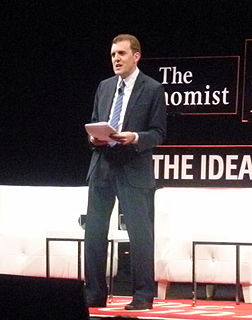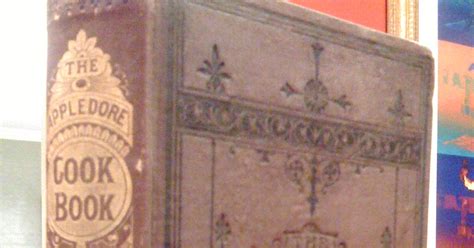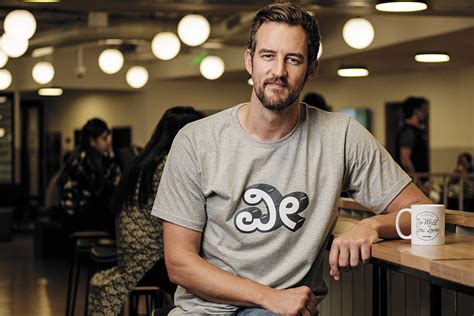A Quote by Howard Schultz
Customers don't always know what they want. The decline in coffee-drinking was due to the fact that most of the coffee people bought was stale and they weren't enjoying it. Once they tasted ours and experienced what we call "the third place" ... a gathering place between home and work where they were treated with respect.. they found we were filling a need they didn't know they had.
Related Quotes
Coffee, she'd discovered, was tied to all sorts of memories, different for each person. Sunday mornings, friendly get-togethers, a favorite grandfather long since gone, the AA meeting that saved their life. Coffee meant something to people. Most found their lives were miserable without it. Coffee was a lot like love that way. And because Rachel believed in love, she believed in coffee, too.
When I first discovered in the early 1980s the Italian espresso bars in my trip to Italy, the vision was to re-create that for America - a third place that had not existed before. Starbucks re-created that in America in our own image; a place to go other than home or work. We also created an industry that did not exist: specialty coffee.
The Arabs understandably did everything they could to protect their monopoly. Coffee beans were treated before being shipped to ensure they were sterile and could not be used to seed new coffee plants; foreigners were excluded from coffee-producing areas. First to break the Arab monopoly were the Dutch, who displaced the Portuguese as the dominant European nation in the East Indies during the seventeenth century, gaining control of the spice trade in the process and briefly becoming the world's leading commercial power.
Most feminists in France came to feminism after '68 as a result of the hypocrisy they experienced in leftist movements. In these movements, where everyone believed there was going to be true equality, fraternity between men and women, and that together they were going to struggle against this rotten society, even there they noticed that the leftists, the militants, kept them "in their place." Women made the coffee while the others did the talking; they were the ones who typed the letters.
In Kenya, one of our biggest exports is coffee. Where do you grow coffee? You grow coffee in the land. To be able to grow coffee you need rain, you need special kinds of soils that are found on hillsides, and that means you have to protect that land from soil erosion so you don't lose the soil. You also want to make sure that when the rains come you're going to be able to hold that water and have it go into the ground so that the streams and the rivers keep flowing and the ground is relatively humid for these plants.
When you sit in a café, with a lot of music in the background and a lot of projects in your head, you're not really drinking your coffee or your tea. You're drinking your projects, you're drinking your worries. You are not real, and the coffee is not real either. Your coffee can only reveal itself to you as a reality when you go back to your self and produce your true presence, freeing yourself from the past, the future, and from your worries. When you are real, the tea also becomes real and the encounter between you and the tea is real. This is genuine tea drinking.
My dad had always been a big decaf coffee drinker. But my mom had always been more of a tea drinker. So I grew up around a lot of tea. And I also really love tea. But I'm not one of those people who has ever felt the need to choose between coffee and tea. I think that is a completely false dichotomy.

































